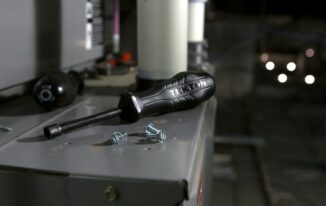Trying to figure out when to time the changing of your home HVAC filters? Let your annual spring cleaning process be your guide.
Regular HVAC filter changing is a really good idea. It’s easy to do, costs very little, and it helps prolong the life of an HVAC considerably. Doing so every turn of the season, like winter to spring and similar, then saves money both in avoiding repairs and getting the most value out of an HVAC system over its life.

Why Filters Matter So Much
An HVAC system integrates both heating and air conditioning. As a result, the two share the same air channel system, both for intake and output. The intake basically provides the air from inside the home that gets recycled. Some amount of air is pulled from the outside as well for freshness, and that ultimately goes through filtration as well. In both cases, the air can be full of dust, pollen, particulates and more. Filtering blocks that material from getting into the HVAC mechanisms.
However, a filter is only as good as its ability to clean. When an HVAC filter gets blocked up or dirty, it loses efficacy and actually creates air flow resistance in the system channels. That causes the heater blower or AC system to work harder, straining their ability. So, changing a filter out regularly, or at least every three months, helps remove the dirt captured, and it prolongs the life of the HVAC equipment.
Seasonal Changes as a Rule of Thumb
As noted earlier, to change your HVAC filter in spring or other seasonal starts in the year makes a lot of sense. The longest a filter should reasonably go without replacement is three months. Since the four seasons of the year are three months apart, it makes for a good rule of thumb to follow in filter replacement. Starting with January, a filter could be changed at the end of March for Spring, and then again in June for Summer, and so on.
Avoid Neglect, It Will Only Cost More
Not changing filters every spring and fall season for the sake of trying to save money will backfire. First off, the cost of an HVAC filter is minimal. Second, it doesn’t do anything to help the HVAC work better or produce more efficient value. In fact, a dirty filter does the opposite. Not only does a dirty filter make the system run harder, which causes increased wear on the AC or heater involved, it also affects the health of those in the home.
Symptoms of HVAC Filters Failing
Are you sneezing a lot, getting headaches, or does your home air smell a bit like mildew? Those are classic signs of a dirty HVAC filter if it hasn’t been changed in at least three months. Fur, dust, bugs, lint and a whole lot more get caught and can be removed from your home air flow if it is changed regularly. If not, that stuff eventually gets through, burns in the heater and eventually gets blown in some form back into the home through the vents with the output. Just make it a point to change a filter along with spring cleaning.
Help With Replacing the Filter
Most hardware stores carry HVAC filters, and the bigger stores tend to have a wider selection of sizes and shapes. They also stock up as the year gets warmer. That said, not every HVAC filter placement is in a convenient location. Many modern homes have the filter in a channel in the ceiling. If you’re having trouble getting the filter changed out for Spring, it’s a good idea to have an HVAC maintenance check done every few months. A technician can easily include the filter change with the visit, ensuring things are maintained properly and fit with the right filter size.
Avoid jamming the wrong filter size into the HVAC system just to be ready for the spring pollen season. First, it will likely create gaps that open air can get pulled through, allowing the contaminants free flow. Second, you could damage the HVAC filter holder, which could result in a bigger repair. Always use the right size. The filter specs are printed on the side of the old filter, which makes for a good reference when shopping.



